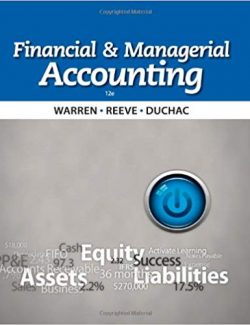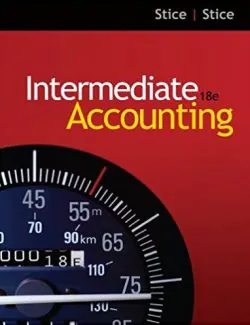Description
Weygandt Accounting Principles starts with what students know. In the new Ninth Edition, students clearly see the relevance of accounting in their everyday lives and are therefore motivated to do the work assigned.
Weygandt Accounting Principles introduces challenging accounting concepts with examples that are familiar to the student. This connection to their everyday lives helps build student motivation, a key driver of student time spent on assignments and ultimately their mastery of the concept.
Create assignments and view results (diagnostic reporting) based on Learning Objective. Helps faculty and students focus on key learning/study objectives from the text.
Ability to create timed assignments and measure time on task; disable feedback and hide question names. Allows usage in testing and quizzing environments.













Leave us a comment
No Comments